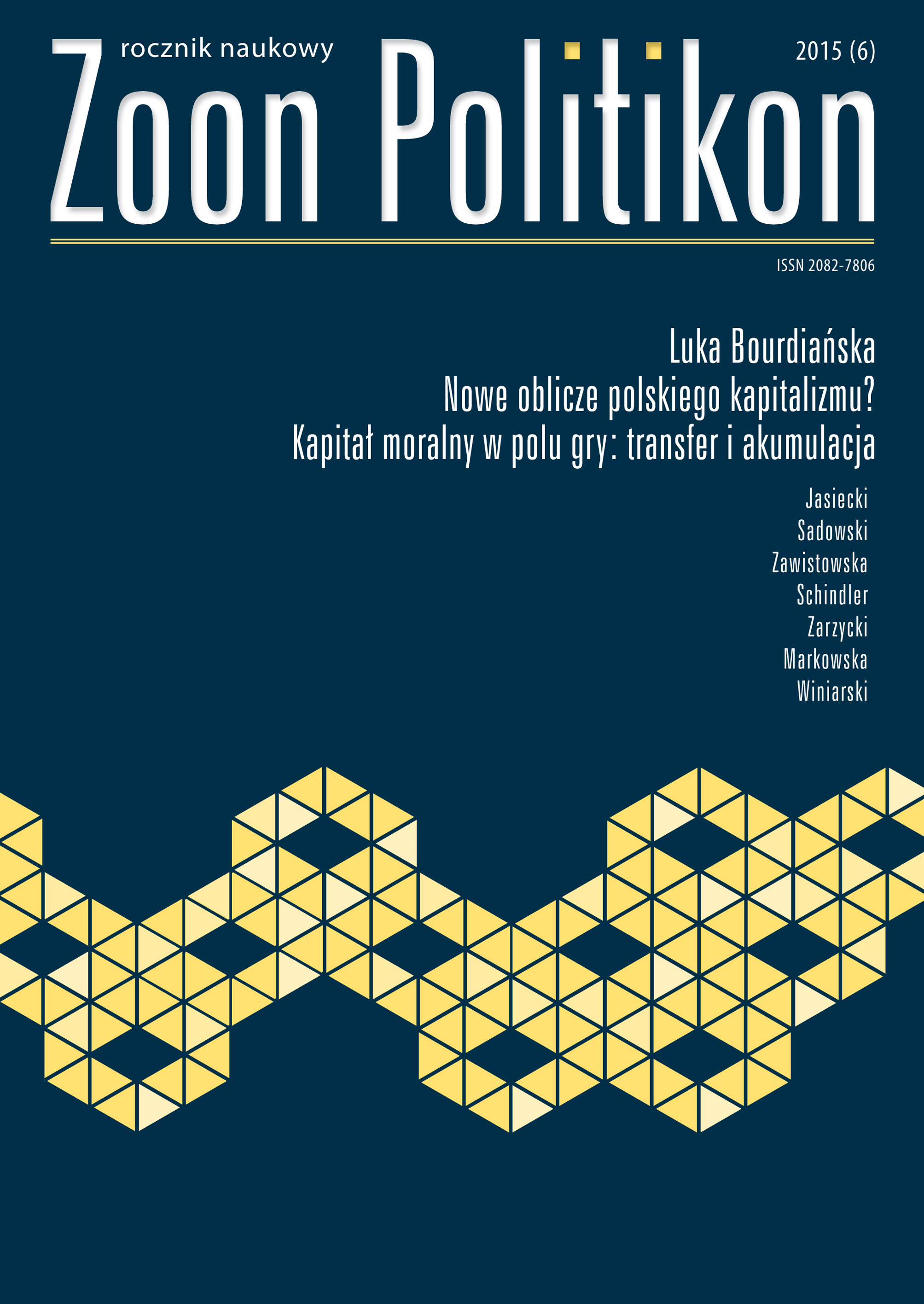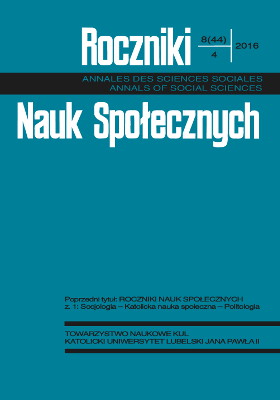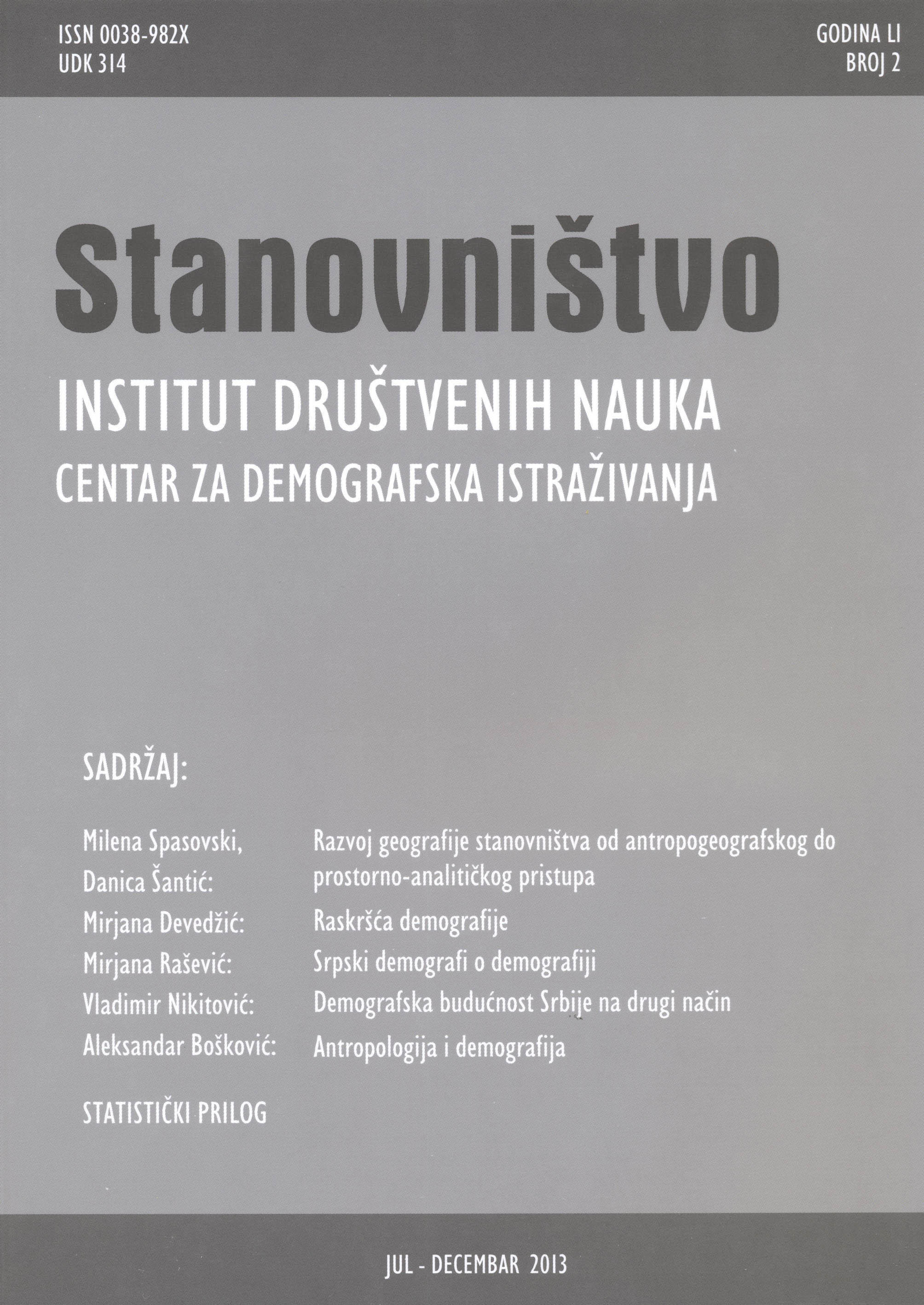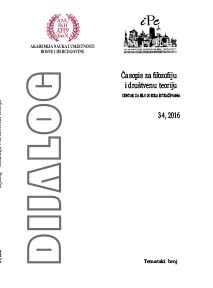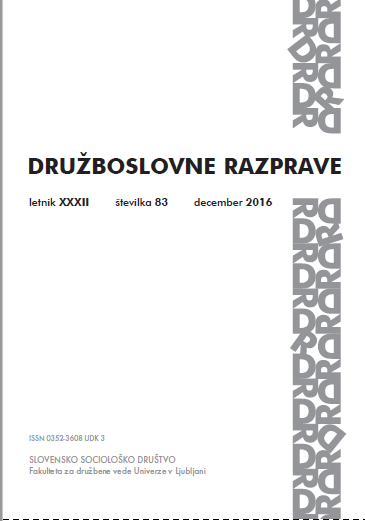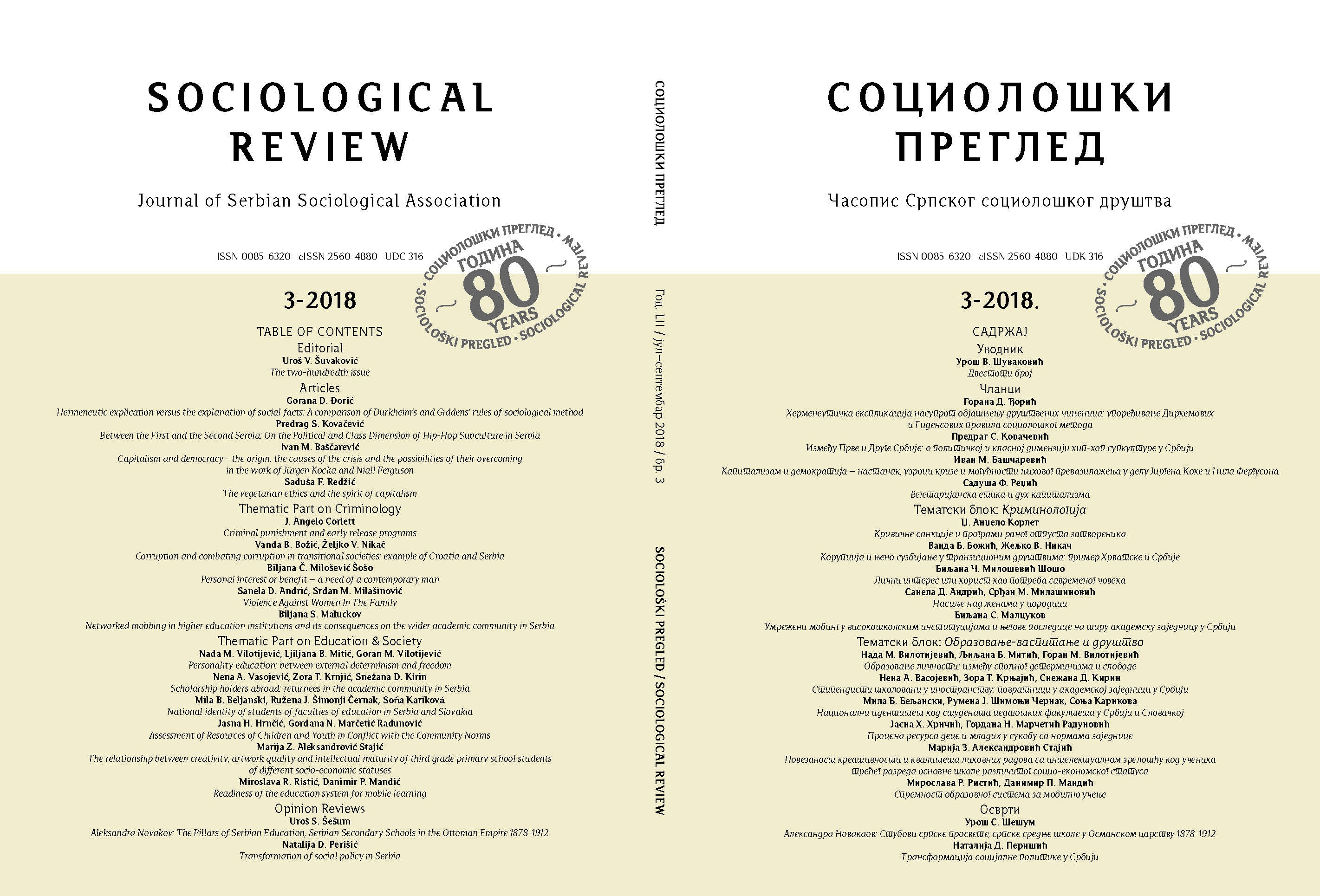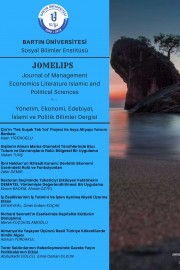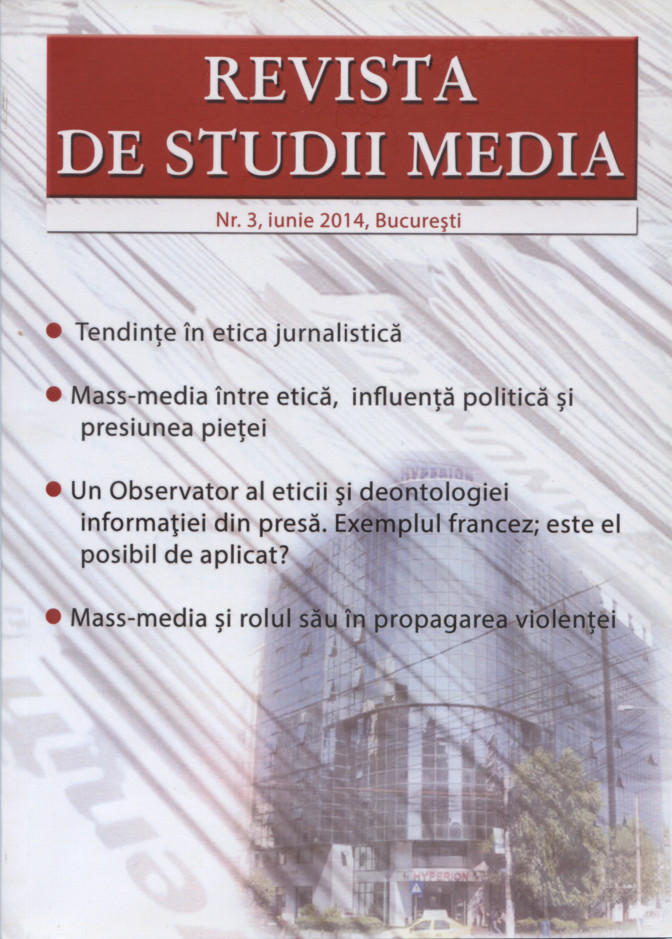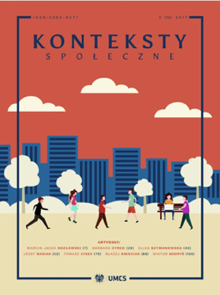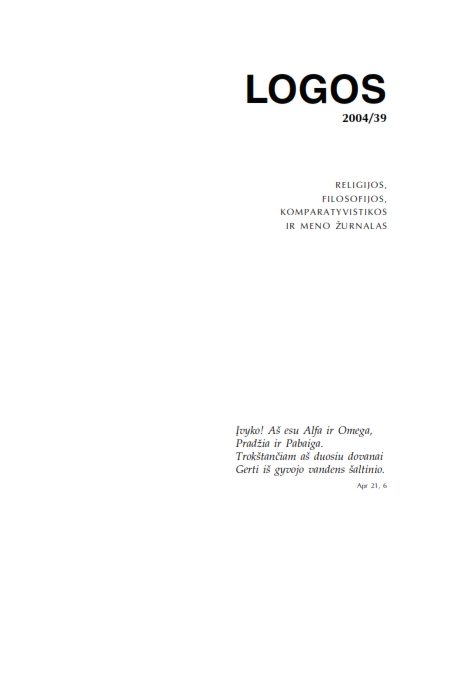Author(s): Milena Spasovski,Danica Šantić / Language(s): Serbian
Issue: 2/2013
Population geography is a subdiscipline of Human geography and studies the distribution, concentration and density of population over the terestrial surface, as well as diferences in population size, changes and characteristics, like structures, migrations, activity etc, among some places present compared to others. Population geography has had a perscientific stage as long as human history. First modern scientific treatis of population in geography was the F. Ratzels book Antropogeography in 1882. During the first half of the XX century, French geographer Vidal de la Blanche gave a capital importance of population studies in his work Principes de Geographie Humaine. In interwar years, various aspects of population were studied. After The Second World War started the renovating movement of geography and new tendencies appear in human geography and, consequently in population geography. Attempts were made to define population geography as a separate sub-discipline. The world wide trend of treating population geography as separate discipline was expressed by publishing monographs, bibliographies and textbooks. The most significant authors who worked on defining population geography were French geographers P. George (1951, 1959), Beaujen-Garnier (1965, 1966); North-american geographers: G. Trewarta (1953, 1969), W. Bunge (1962), J. Clance (1965, 1971), W. Zelinski (1966); in Great Britain: J.I. Clarke (1965); in USSR: Ю.Г. Саушкин i Д.Н. Aнучин (1950), В.В. Покшишевский (1966), Д.И. Валентeй (1973); in Poland V. Ormotski (1931), L. Kosinski (1967) A. Jagelski (1980). Those authors and their works had the significant influence on the development of population science in the world and also in Serbia. Although the development of population geography was different in different countries and scientific research centers, we can clearly defined four stages. First stage lasted untill 1960s and was characterised by works of G.Тrewarta, H. Doerres Ю.Г. Саушкин, Д.Н. Aнучин, J. Beaujeu-Gariner. G. Trewarta argued that the population is the point of reference from which all other elements are observed and from which all derive significance and meaning. This view was adopted and shared by authors dealing with population items, explicitly or implicitly. Second stage lasted from 1960s till 1970s and the most significant authors dealing with population problems were W. Zelinsky, W. Bunge; H.Bobek, W. Hartke, K.Ruppert, F.Schaffer; Д.И. Валентeй, K.Korčak. This phase was characterized by the application of quantitative methods and efforts for understanding the spatial structure of the population. Many scientists see this development phase as a particularly prosperous period, because it carried more intensive relations of geography and demography through the introduction of statistical, mathematical and demographic methods and techniques in studies of population geography. Third phase lasted from 1970s to 1980s, and was characterized by close relations between population geography and formal demography. Development and application of GIS and computer data, have made population studies more complex and applicable in practice, through population policy and population projections. The most significant authors in this period were L. Kosinski, A. Jagelski, Hägerstrand. And at last, fourth stage started in 1980s and in many countries lastes untill present days. In population geography appeared new tendencies associated with the critique of positivism, the establishment of humanistic approaches and modifications of general geographic concepts. In this period, spatial analysis and quantitative scientific methods were reaffirmed, and because of that some population studies were redefined in spatial demography, a time dimension advocated in historical demography. In this context, we emphasize the work of D. Plane and P. Rogerson. Population geography is viewed differently from one country to another. Its definition differs from too narrow to overly broad. But two reserch areas were of particular interest to geographers – population distribution and migration. Both items acquired an international dimension. Recently, eminent population geographers excanged various view points in an attempt to provoke new thinking on subject and define the answers of new fields reserch in population geography. Population geography in the XXI Century is no longer a field comprised of spatial applications of fertility, mortality and migration only. Contemporary population geography is theoretically sophisticated, integrating spatial analysis, GIS and geo-referenced data. Future progress in the field of population geography will derive from more research at the intersections of population processes and societal issues and concerns. Major themes of future empirical researchs in population geography should be: global population growth, studies of migration, transnationalism, human security issues, population-health-environment nexus, human-environment sustainability, economic development and poverty issues.
More...
